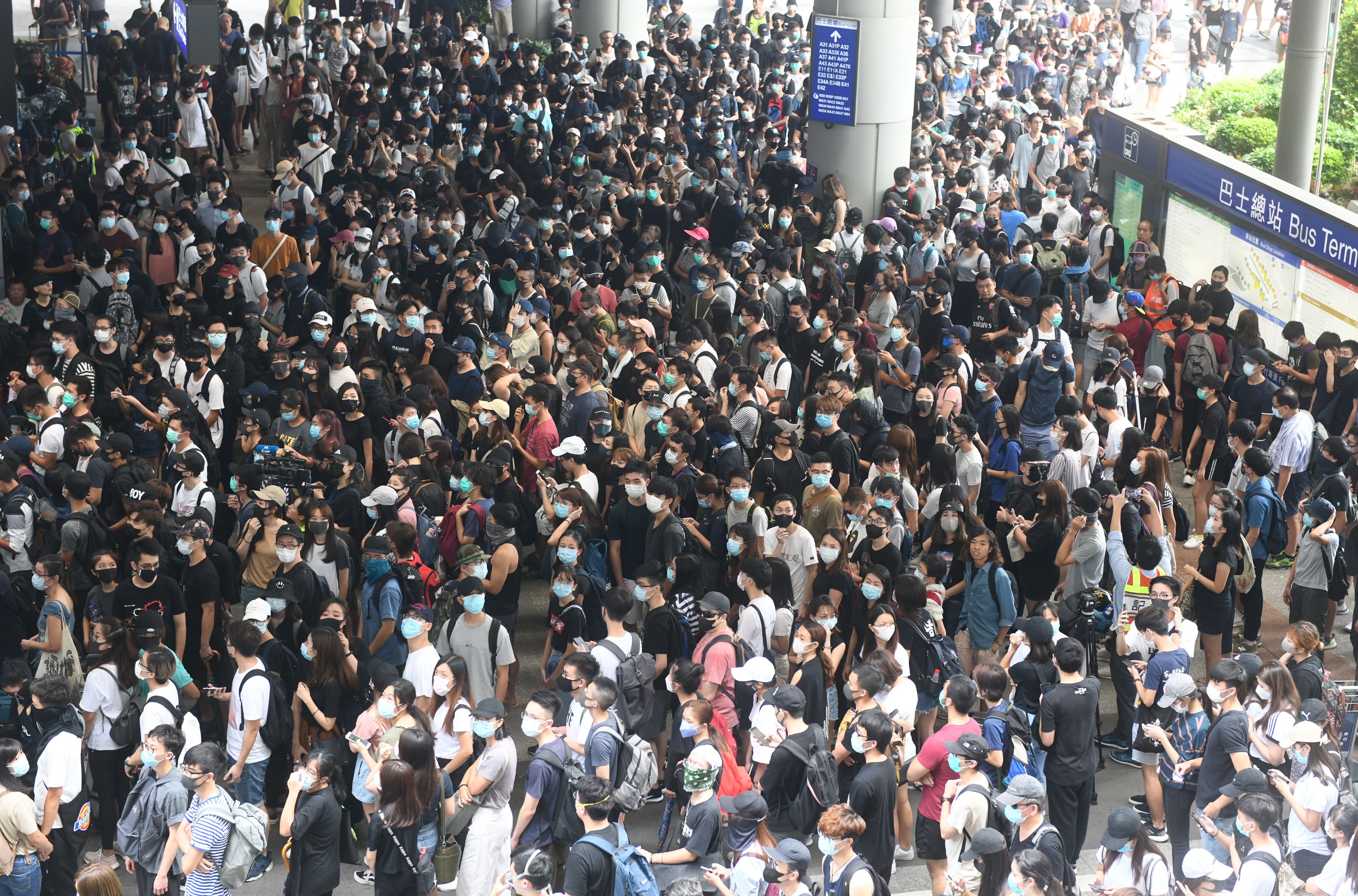Chinese President holds talks with visiting Pakistani counterpart in Beijing
Chinese President Xi Jinping held talks with Pakistani President Asif Ali Zardari in Beijing on Wednesday.
Meanwhile, detailed lists were being circulated on social media sites, with map applications showing the colour of restaurants in different districts.

(Photo: IANS)
With anti-government demonstrations in their fifth month, protesters in Hong Kong segregated restaurants over their political affiliations by using colours — “yellow-ribbon” means it supports the protest movement, while “blue-ribbon” refers to those places deemed to support the government and the police, according to reports on Saturday.
Restaurants and other businesses in the city have been caught between anti-government protesters and those who support the government and police, the South China Morning Post reported.
Advertisement
While taking sides, willingly or unwillingly, brings the risk of offending the other camp, losing business or having the business premises vandalised.
Advertisement
Meanwhile, detailed lists were being circulated on social media sites, with map applications showing the colour of restaurants in different districts.
Catering sector lawmaker Tommy Cheung Yu-yan has said that customers have the right to choose where to eat and no one should attack businesses over their political stance.
“Every customer is a guest, no matter what his or her political views are. Business owners and their employees should uphold that,” he added.
The protesters’ readiness to label businesses has caused jitters within the industry, said the South China Morning Post.
TamJai Yunnan Mixian, a popular noodle chain, was branded “blue-ribbon” because police officers have been heard at its outlets referring to protesters as cockroaches.
Earlier on Friday, the city’s court had issued a temporary injunction to block messages, inciting violence on popular instant messaging application like Telegram and online forum LIHKG which aimed at minimizing the risk of violent clashes which have increased over the past 21 weeks of anti-government protests.
The protests, which have been drawing massive crowds since June following a contentious proposed extradition law that has been pulled by the government, have mutated into a movement that seeks to improve the democratic mechanisms that govern Hong Kong and safeguard – or expand – the region’s partial autonomy from Beijing.
In 2018, the Hong Kong government had disqualified the candidacy of another pro-democracy activist, Agnes Chow, for the Legislative Council by-election in March of the same year due to her stance on advocating self-determination for the former British colony.
The controversial China extradition bill was withdrawn in early September but the movement has morphed into a wider campaign for greater democracy and against alleged police brutality.
Advertisement